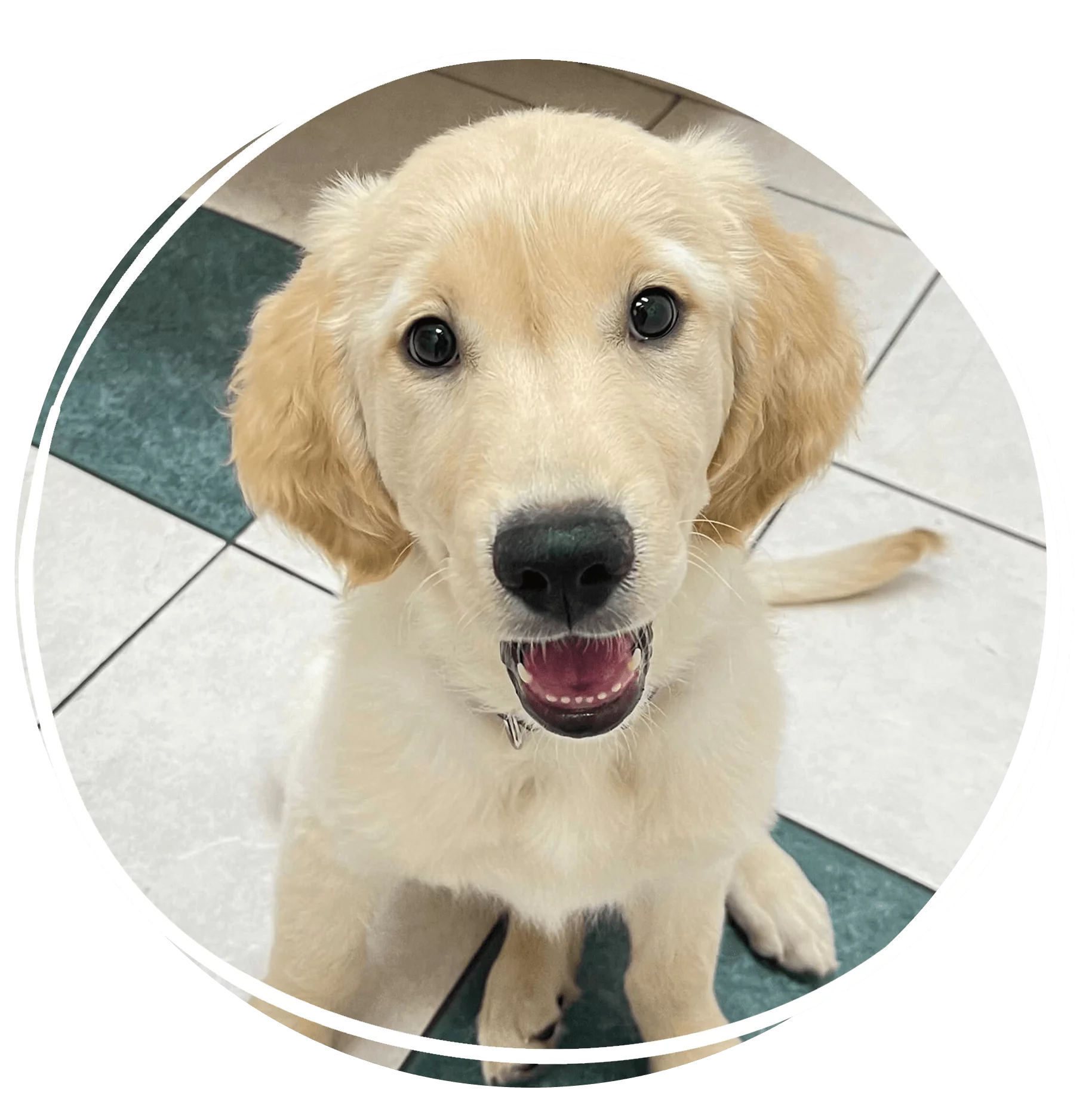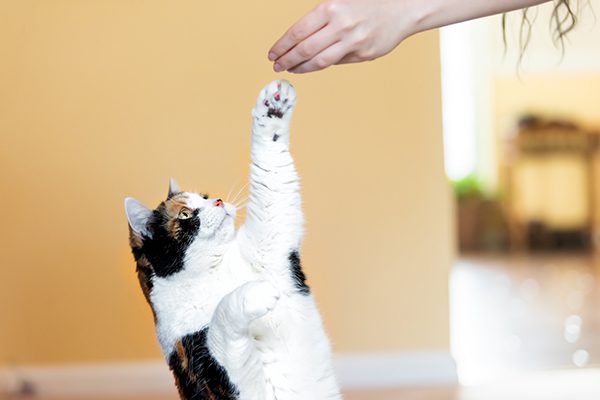
Our Veterinary Blog
What Human Foods Can Cats Eat?
Cats are primarily carnivores, which indicates that they need an adequate amount of meat in their diet to be healthy. Introducing them to new foods can be exciting for them. Make sure that the foods you have them sample are okay for them to consume.
Cats can eat a selection of human foods, such as certain vegetables and fruits. Some of these foods even have some nutritional value and can be good for them. There are many vitamins in these foods that can help with immune system function and maintain a healthy, shiny coat of fur.

Cats may often be fussy eaters, but they are always curious about what you are eating. It needs to be said that before you share any of your food with your fur baby, check with your veterinarian first. Read this article and find out what human foods cats can eat.
Are Human Foods Safe for Cats?
While pet parents are most concerned with human foods (see video) that can harm their animals, it is refreshing to focus on what human foods they can eat. Below is a chart that will give you a quick glimpse of what these foods are:
Below some of these human foods that cats can eat will be explored:
Vegetables
Some vegetables, such as cucumber, peas, and pumpkin, contain nutrients that cats can benefit from. For example, cucumber is high in vitamin K, which can help your cat with their liver health and blood clotting. It also contains molybdenum, which is a trace of mineral that supports your cat’s metabolism.
Pumpkin is good for cats because it can help with constipation. It contains a lot of fiber, which fills your cat up with fewer calories. It also has vitamin A, C, and zinc. Pumpkin is included in some commercial cat foods.
More vegetables that you cat can eat include carrots, cauliflower, and green beans.
Fruits
Cats cannot taste sweets. However, there are fruits that your cat can eat in moderation. Cats can eat berries, such as blueberries and strawberries. Blueberries contain a good amount of antioxidants, as well as the following vitamins:
- Vitamin A
- Vitamin C
- Vitamin E
- Vitamin K
Strawberries contain the following vitamins:
- Vitamin C
- Folate
- Potassium
- Manganese
Fruits also contain plenty of fiber, which is good for cats too. Make sure you cut the fruit up into tiny pieces so that your fur baby does not choke. Some additional fruits that your cat can eat include apples, apricots, bananas (only a little), and mangos.
The one major fruit you must never feed your cat is grapes. Grapes and raisins are poisonous to felines, as they can cause kidney failure. Keep these foods away from your fur baby.
Grains
There is nothing wrong with offering your cat oatmeal with water in it. It has a lot of nutrients, such as vitamin B6, iron, and calcium. Calcium is essential for your cat to develop healthy bones—oats aid in proper digestion.
The zinc in the oatmeal helps cats maintain healthy fur and skin. The manganese in this food is good for your cat’s bones and thyroid. The minerals and nutrients found in this food promote your cat’s overall health.
Other forms of grains that are OK for cats include baked bread, polenta, rice (only a little), and couscous.
Protein
Cats are total carnivores, so naturally, the meats, fish, and proteins we eat have the potential to boost your cat’s health. Cats have a more significant protein requirement than many other mammals. Many veterinarians recommend that a cat’s diet be comprised of 35 to 45 percent protein.
Fish is excellent for cats because it has omega-3 and omega-6 fatty acids. It also contains taurine, which helps to regulate digestion and heart rhythm. Fish is high in protein and other important nutrients. Cats tend to love fish because it smells divine to them.
If you feed your cat salmon or tuna, be careful with the mercury, as it is unsafe to feed your cat too much fish.
Chicken is suitable for cats, as well, as it satisfies their carnivorous impulses. It is a lean and high-quality protein. Some of the nutrients in chicken include:
- Vitamin B-12
- Vitamin B-6
- Vitamin B-3
- Vitamin B-9
When you feed your cat chicken, make sure you take the skin off first. You should also be mindful not to feed your cat chicken that has been marinated in spices that can be toxic to your cat.
Cooked eggs are safe for cats in moderate amounts. Some of the significant vitamins in eggs include:
- Vitamin A
- Vitamin B-12
- Riboflavin
- Thiamine
- Vitamin D
- Zinc
Vitamin A strengthens the health of your cat’s nervous system and heart while also promoting a healthy coat. Riboflavin encourages the production of red cells and antibodies, which protect your cat from illness and disease.
Dairy
There is a long-standing myth that cats love to drink big bowls of milk or cream. However, this is a fallacy. Dairy should only be given to cats in minimal amounts, as it can harm their gastrointestinal system.
Cats love the smell of cheese, as it is strong and potent. It makes them curious. Harder cheeses are safer for cats. These include:
- Cheddar
- Gouda
- Parmesan
These cheeses are safer than others. This safety is due to their low sodium and low lactose content. Softer cheeses can be a problem for cats because they are high in lactose. Cheeses like mozzarella and brie need to be avoided.
Blue cheese is also bad for cats because it contains a mold called Penicillium, which can be toxic to cats. Never feed your cat moldy cheeses. When providing your cat cheese, keep in mind that your cat has a sensitive digestive tract.
If you do give your cat cheese, only feed them a little bit as a treat. Make sure your cat is not allergic to dairy before giving them any cheese.
Double Check with Your Vet on What’s OK to Feed Your Cat
Some human foods are safe for pets. You can give them a variety and see how they respond, but only give these foods in moderation.
Safeguard your cat’s health by giving them their cat food with more nutrients specifically formulated for them. Always verify with your veterinarian prior to giving your fur baby any human food.
Recent Posts
About Us
Family is family, whether it has two legs or four. At Lakeland Animal Clinic, we've spent the last 40 years healing and caring for your pets. As a family-operated practice, we know that family is about more than simply being related. Animals give us the ability to develop strong bonds and feel great compassion for a fellow living creature.
